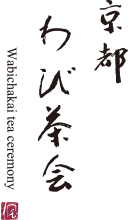
A pure expression of hospitality
Matt,tourist from the USA
When we arrived at the tea ceremony house, we were greeted by the sound of the river and clean mountain air and immediately felt relaxed. Michiyo greeted us and led us down the steps to the tea house. She was incredibly warm and put us both at ease. The tea ceremony was a beautiful expression of Japanese hospitality and a welcome reprieve from the distractions of modern life. During the ceremony I felt a pure human connection to everyone around me in the silence. Every movement is intentional, designed to show respect and build trust and ensure that the Matcha is perfectly prepared. And we agreed that by far, it is the most delicious Matcha we had ever experienced. As a traveler in Japan, my goal is to discover and experience the rich culture of Japan and I truly feel that this tea ceremony was one of the most meaningful parts of my journey.

Sakika Nakajima,University staff
The scent of tea, the sound of walking on tatami mats, the beautiful tea ceremony , and the delicate seasonal flavors of Kyoto sweets. A world detached from the hectic everyday life is spread here. It is a valuable moment where the five senses are sharpened and the heart is relaxed.
Rin Aoki,Securities Salesperson
A moment in a tea room surrounded by nature is a precious time where you can forget about the hustle and bustle of daily life and face yourself. The delicate Kyoto sweets and matcha, as well as the soft Kyoto dialect used to convey living wisdom, washed my heart with new discoveries.
Yuko Fujimura,housewife
I attended without knowing the etiquette, but the teacher's gentle voice and consideration, the scent of tea, and the delicate seasonal sweets that loosened my tension allowed me to focus on myself as the event progressed. In the midst of the busy daily life, the time spent in the tea ceremony allowed me to experience the release of the heart.

The sort of Japanese hospitality strived for by Rikyu
Great Acharya Kakudo Mitsunaga, Hokuryodaigyoman
I felt the gentleness of the candlelight in the darkness, experienced a world without sound in a modern age full of it, and realized the value of food. This is an ideal place for noticing various things that one doesn’t normally pay attention to and for cultivating the ability to think. The tea ceremony gave me the opportunity to meet in a space devoid of all that is unnecessary, enjoy delicious tea and a simple meal, and have a genuine heart-to-heart, which makes wabi-cha a prime example of what Rikyu sought, and that’s what Japanese hospitality is really about. There, in that stripped-down place, only that which is necessary remains. That is the true nature of reality.

The sound heard in the silence
Shiho Tanaka, vocalist
As someone who grew up in Tokyo, I was always drawn to Kyoto’s traditional culture. When I experienced the recent “Wabichakai tea ceremony”, I felt something even deeper than I imagined. The deliciousness of the simple meal I ate within nothing but candlelight washed over me, and I almost cried. And then there was the soundless, lightless world of the “Wabichakai tea ceremony”. But there was also a rich brightness and sound there. I found myself with a strong desire to incorporate the “sound that can only be heard in the depths of silence” into my own songs.

I was entranced by the worldview
Myokan Matsumoto, great Buddhist statue sculptor
During my 50-year life, there have been many times when I’ve sensed changes in various values and sensitivities. And it was at a time like that when I was blessed with the opportunity to participate in a “Wabichakai tea ceremony”. I was a little nervous and confused at first, but my point of view was broadened as the ceremony proceeded, I was surprised to find that the glow of the candlelight in that unusual, dream-like space was brighter than I imagined, and there even seemed to be something sexy about the tea master’s dignified appearance and precise, beautiful movements. I found myself entranced by the worldview when the ceremony ended.

An imagination-stimulating experience for employee training
Hiroshi Okui, director and producer at an advertising agency
As I listened to the sound of the kettle, I experienced a sense of freedom, almost like I was expanding to fill that closed space. I suspected that there were likely other realizations I could experience if I went a second or third time depending on my state. A friend of mine attended with me, each word they exchanged with the host penetrated me to the core, and I learned that they’d made reservations for “CHANOYU therapy” to take a closer look at themselves. I think this tea ceremony, which stimulates the imagination, could be used for some kind of company employee training.







